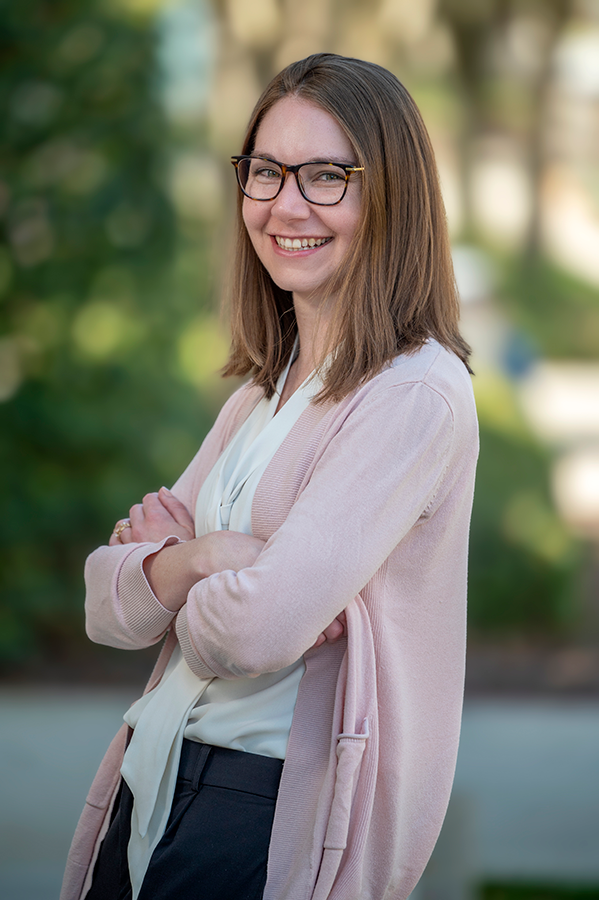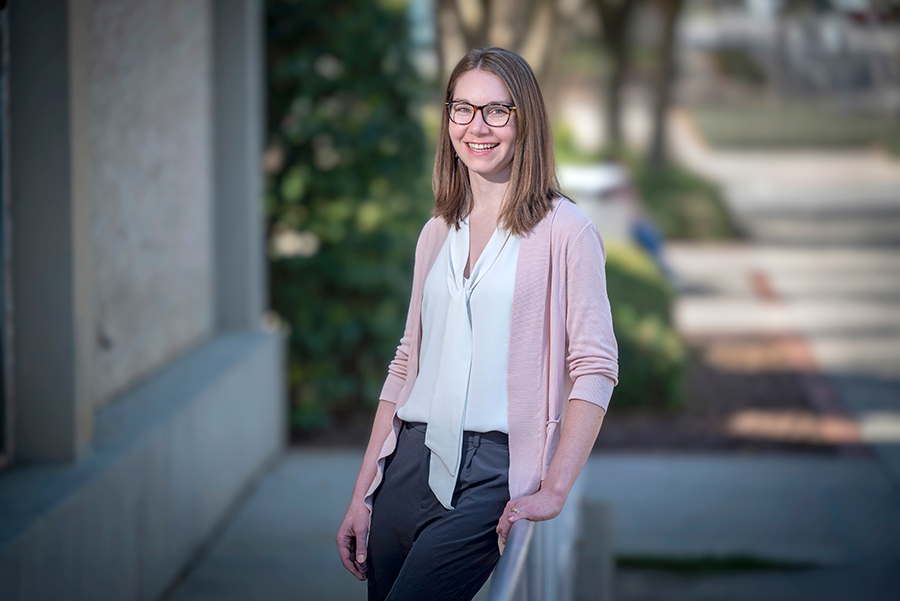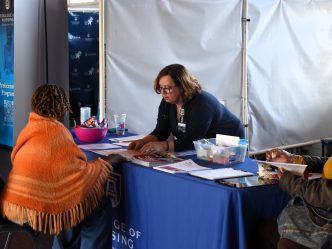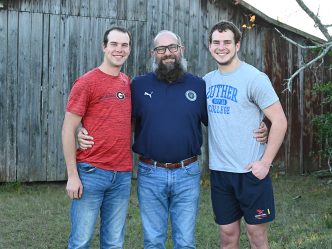Securing that first external grant is a momentous occasion for an early career faculty member because it’s confirmation that someone believes in you as a researcher.
For Lauren von Klinggraeff, PhD, that confirmation has come from the American Heart Association in the form of an early career development grant.
“What’s unique about the Career Development Award is that it’s not only an opportunity to move my science forward and support children’s health, but it’s a vote of confidence in my future potential as a researcher,” said von Klinggraeff, an assistant professor in the Department of Community and Behavioral Health Sciences of Augusta University’s School of Public Health. “It’s incredibly validating but also incredibly intimidating. I keep thinking, ‘I can’t believe this is really happening.’ To receive my first grant as faculty is such a big milestone.”
Earlier this academic year, von Klinggraeff was awarded a similar early-career grant from Augusta University’s Career Development Scholar Program.
“I am so delighted with how much Lauren has accomplished since joining the School of Public Health in January 2024,” said Teresa Waters, PhD, dean of AU’s School of Public Health. “Her research holds immense potential to positively impact our community by fostering healthier life trajectories for children. I am deeply impressed by her outstanding and transformative work, and I have no doubt that she will continue to make significant contributions to advancing the field of pediatric obesity research.”
“The work Lauren is doing is incredibly important since obesity is so pervasive in the U.S. and leads to many of the chronic diseases adults experience later in life,” said Aaron Johnson, PhD, associate dean of research and community engagement and director of the Institute of Public and Preventive Health. “Trying to address the obesity epidemic by creating healthy habits around physical activity in younger children could have very positive, long-term public health implications.”
Von Klinggraeff’s research focuses on childhood obesity prevention and promoting children’s cardiovascular health.
“Research shows that kids gain three to five times the amount of weight over the summer than they do in the remainder of the school year,” von Klinggraeff said. “So, we know these unstructured times – like summer, after school or the weekend – they’re critical times for us to intervene and support children’s health if we want to prevent accelerated weight gain.”
Originally from Colorado, von Klinggraeff has a passion for the great outdoors and being active outside. She studied biology for her undergraduate degree at Bethany College, then earned a Master of Public Health from the University of Colorado’s School of Public Health and her PhD in Exercise Science and Kinesiology from the University of South Carolina.
As a research assistant for a team at the University of Northern Colorado, von Klinggraeff studied children’s physical activity during the school day with a goal of integrating physical activity into educational curricula. Through a professional connection between her research team and colleagues in South Carolina, the door opened for her to move to Columbia to pursue her PhD.
“The research I assisted with at the University of South Carolina was focused on out-of-school time. It was less focused on physical activity as the primary outcome but rather framed physical activity as one of several health behaviors that are relevant to the bigger public health issue of childhood obesity,” she said.
While at South Carolina, she received a grant to help with her dissertation, and that is where she started looking at the role of preliminary studies in developing effective public health interventions.

“Most of the time, in health promotion interventions, we do a small initial study, and then, if we are lucky enough to get a big grant, we’ll test that idea again with a larger group of people,” von Klinggraeff said. “But what’s interesting is that the interventions in those larger studies are almost never as effective as the earlier study.
“For my dissertation, we were really curious about what might be causing that pattern,” she continued. “So, we searched for every published pair of these smaller, preliminary studies and the resulting larger trials that we could to see if we could predict this failure to scale based on the differences between the small initial study and the bigger trial. What we found is that it’s best to match the features of your early study to your future larger study. If the intervention in the larger study will need to be delivered in a community setting, then the initial smaller study needs to be delivered in a community setting.”
She is now conducting a small initial study of her own, through the American Heart Association award. Her idea centers around prescribing free or very low-cost after-school care for children with cardiovascular risk factors. She has already partnered with the Boys and Girls Club of Greater Augusta, which will provide the after-school care through their existing clubs, and she is looking to extend that partnership to federally qualified health centers in Augusta, as well. Her hope is that this could start locally but be scaled up to the regional and national levels.
“Kids who attend after-school programming get more daily physical activity and have better cardiovascular outcomes compared to children who do not attend after-school programming,” von Klinggraeff said. “Kids who have obesity, hypertension, high cholesterol or diabetes will be eligible to be prescribed free after-school care by their pediatrician.”
Her hope is that these programs will support kids to engage in more physical activity and their health will improve. Currently, she is in the preliminary stages of her research, gathering data and looking at the feasibility.
“During this preliminary testing phase, we’re answering questions like ‘Are doctors interested in participating in this program?’ ‘Do families want to sign up?’ ‘Do after-school programs want to participate in a program like this?’” von Klinggraeff said. “Once we are able to answer those questions, we can begin to look at integrating it in the area, before scaling it up to figure out if it’s effective.”
According to the U.S. Centers for Disease Control and Prevention, about one in five children in the United States is obese. Georgia ranks 20th lowest in childhood obesity rates, as reported in the Healthy Georgia Report by faculty in SPH’s Institute of Public and Preventive Health.
The World Health Organization reports that in 2022, over 390 million children and adolescents aged 5-19 were overweight, including more than 160 million who had obesity. The prevalence of overweight among children and adolescents between the ages of 5-19 has risen sharply, from 8% in 1990 to 20% in 2022. This increase is similar among both boys and girls, with 19% of girls and 21% of boys being overweight in 2022.
Children living below the federal poverty level are more affected by obesity than those above. In Georgia, about 8.1% of children above the poverty line are obese, compared to 17.8% of those below the line, according to data analyzed for the 2025 Healthy Georgia Report.
 Augusta University
Augusta University




